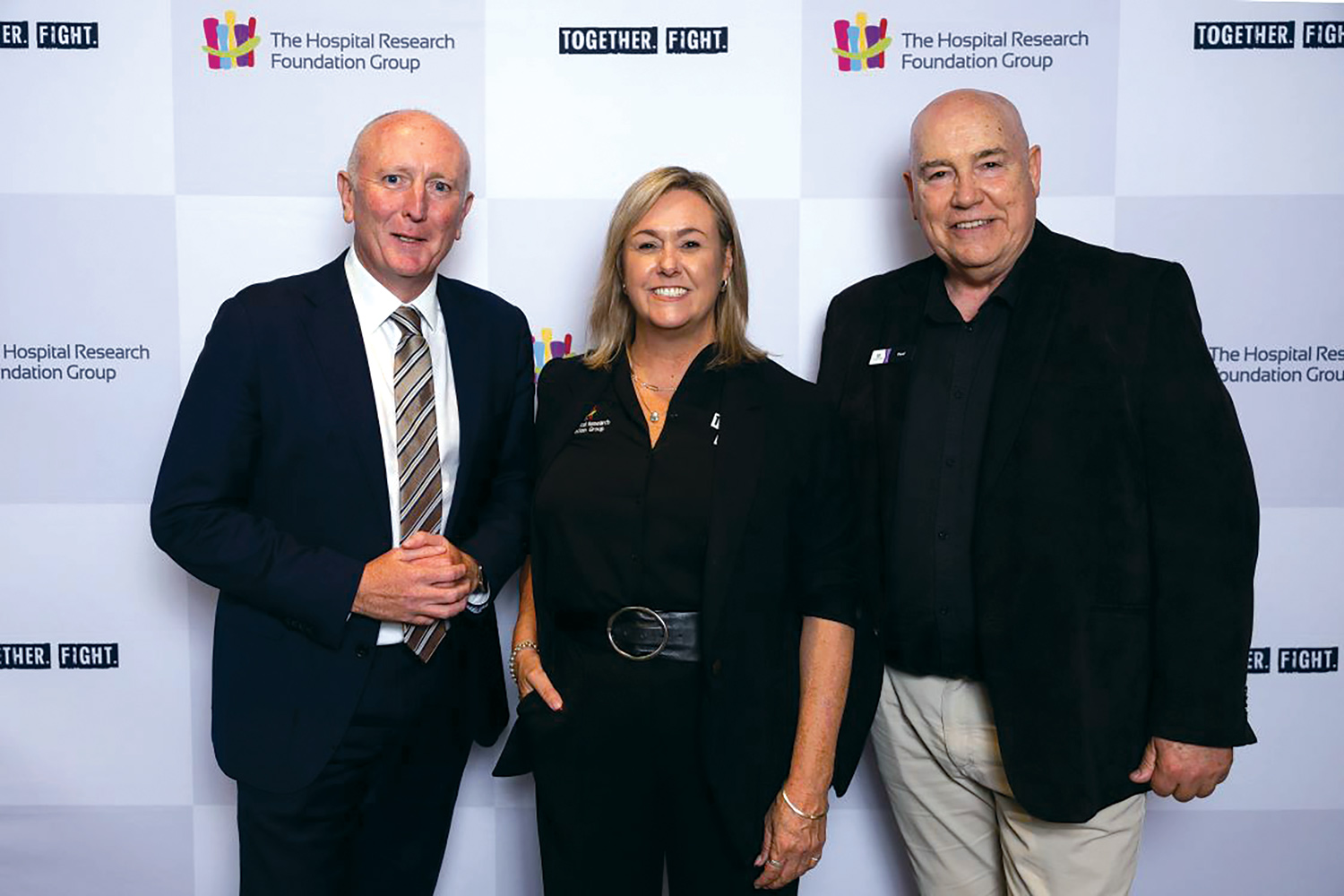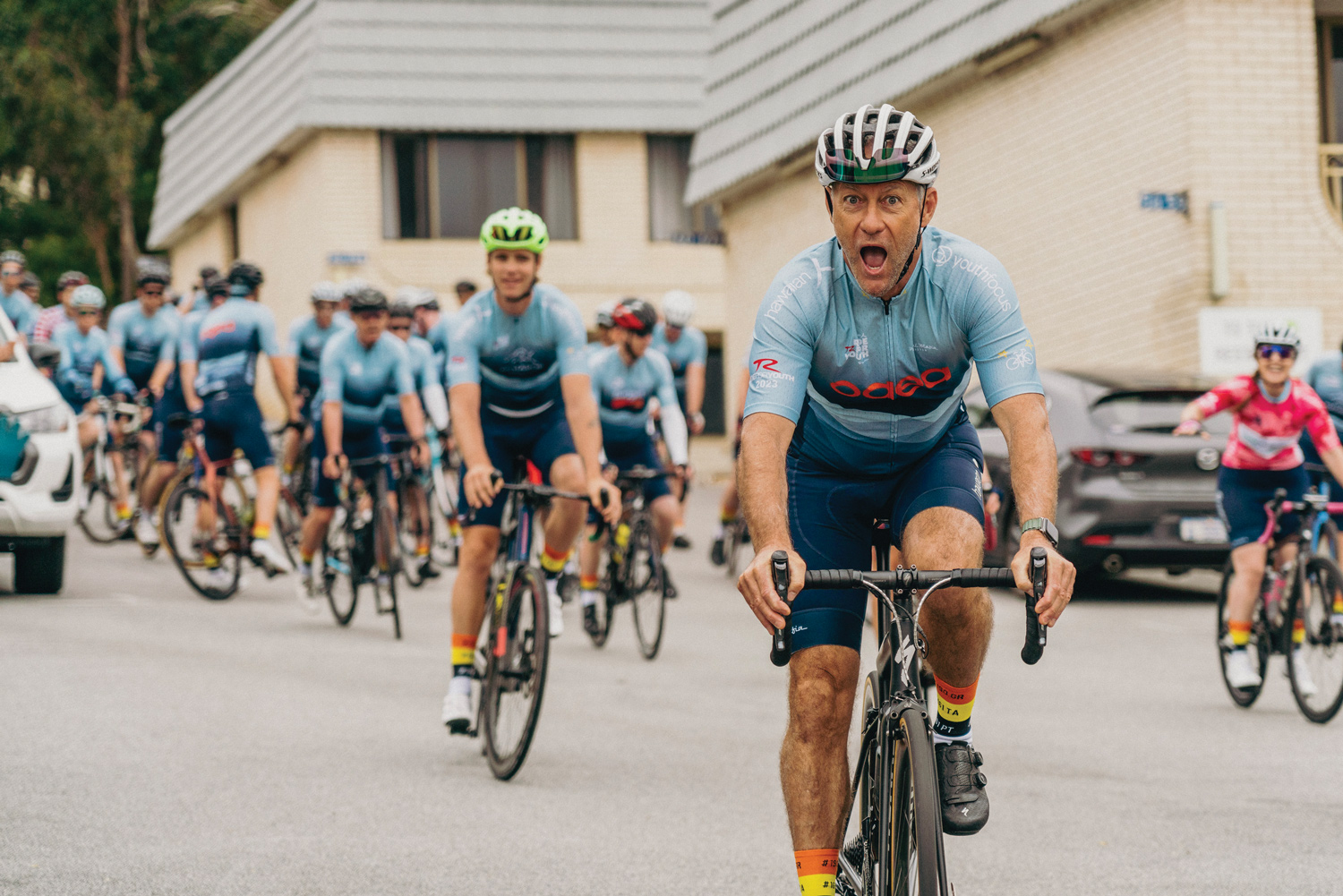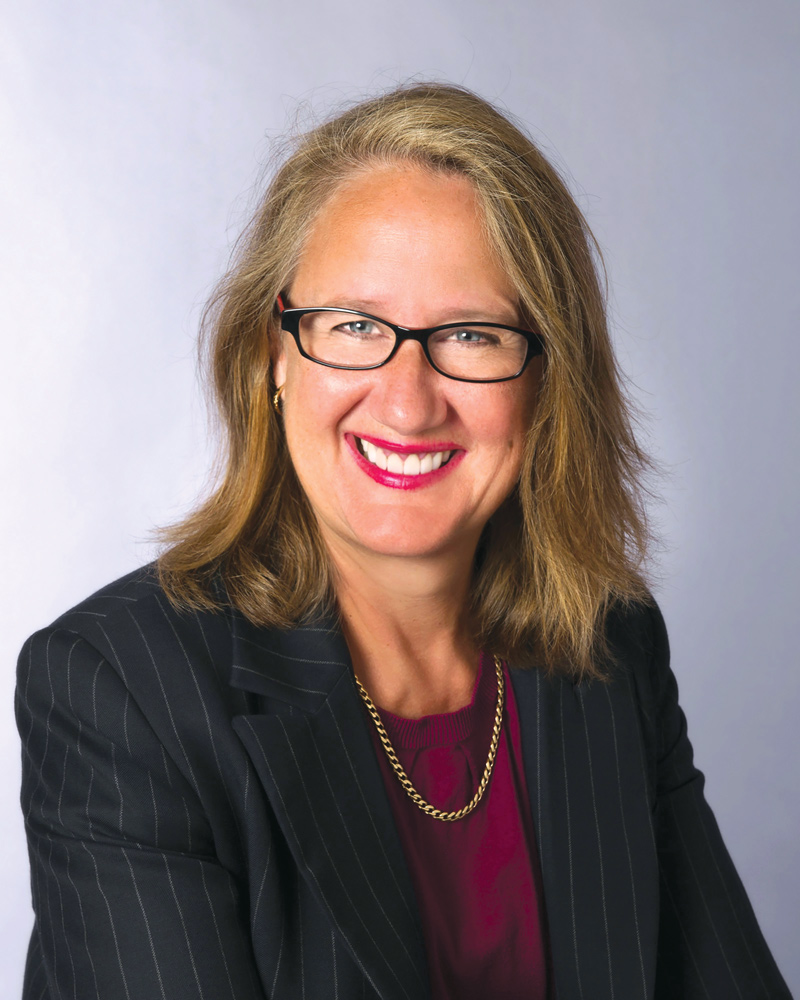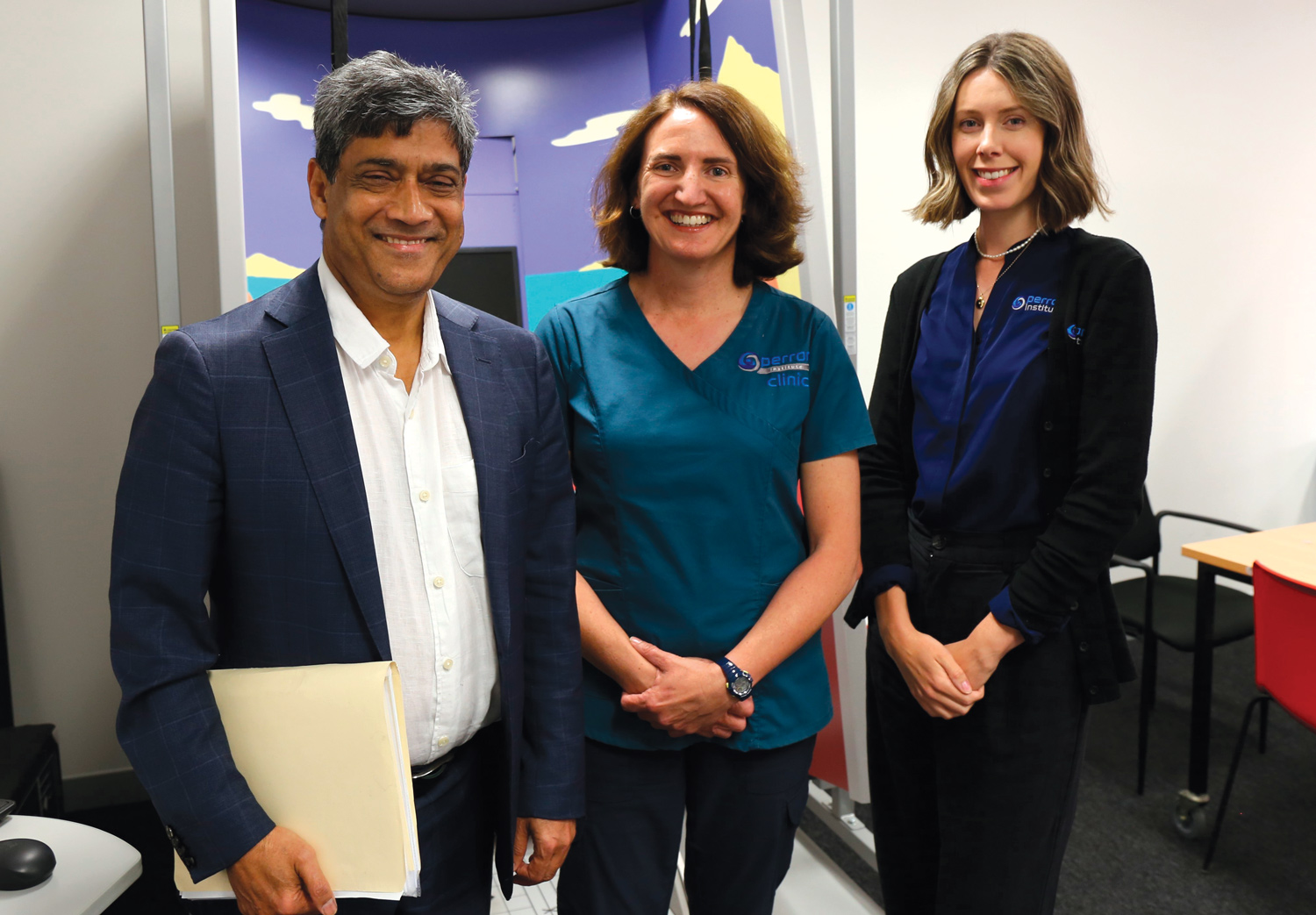
Funding boost for medical research
The Hospital Research Foundation Group has welcomed a new partnership with the State Government which will provide $3.5 million for medical research in WA.
Minister for Medical Research Stephen Dawson announced the agreement at THRF Group’s annual awards dinner in November, which will see the Government’s Future Health Research and Innovation Fund match the research group’s $1.75 million investment.
The $3.5 million in co-funding will support up to five three-year fellowships in preventative health across WA, with a focus on regional and remote areas, Aboriginal populations, culturally diverse communities, men and boys and those facing socioeconomic disadvantage.
The funding will include a range of project and seed grants, which will further research into treatment for cancer and neurodegenerative and cardiovascular diseases.
On the awards night, nine research projects were given funding by THRF Group to improve health outcomes for melanoma, bladder cancer, mental illness and bowel cancer.
Researchers from Edith Cowan University, UWA and Murdoch University were among the award recipients.
THRF general manager in WA Dana Wallace-Campbell said this year’s awards marked an expansion from the group’s traditional south metropolitan focus to a Statewide focus.
One of the projects to receive funding will look at high mortality rates from bowel cancer in the Aboriginal community to see whether it was related to a different type of cancer, access to screening or the efficacy of treatments.
Another project will look at the use of wearable technology to detect and prevent suicidal ideation in at-risk populations, with the goal of improving mental health care in schools and hospitals.
Election wish list
WA public health experts want the next State Government to increase spending on prevention to stem the tide of chronic disease and broader health problems.
The Public Health Association of Australia’s WA branch election platform calls on political parties to act on alcohol-fuelled family violence, climate change and youth detention, and to maintain restrictions on poker machines.
PHAA WA president Ainslie Sartori said that with the number of West Australians living with chronic disease increasing, and the health system straining under pressure, investment in prevention was crucial.
“We want to see at least 5% of the health budget allocated to prevention by 2029, and it’s disappointing that there is no clear reporting on progress on promises relating to spending more on prevention made at the last State election,” she said.
“We are hopeful that this can be turned around, with regular reporting of progress and increased investment in prevention to ensure our WA health system is sustainable and cost effective.”
The election wish list calls for the next Government to:
- increase investment in prevention and health promotion for a sustainable health system
- address alcohol’s contribution to gender-based violence
- protect children from the influence of harmful industries
- raise the age of criminal responsibility to 14
- maintain electronic gaming machine restrictions
- act boldly on climate change by setting a net zero emissions by 2035 target.
The three major parties have been asked to respond to the wish list, with the PHAA planning to publish a scorecard closer to election day, currently slated for March 8.
Cancer fellowships
The Health Department has awarded two WA Cancer Fellowships totalling more than $488,000 to support the research and training of medical practitioners in cancer care. Recipients were selected from a competitive field of applicants and are set to start their fellowships in the WA health system this year.
Both recipients have been awarded a fellowship through the research stream, which aims to develop research capability and facilitate high quality research.
- Dr Thomas Buss will be undertaking the ‘Empowering CAR T-Cell therapy patient care through innovative remote patient monitoring: A pilot trial in Western Australia’s research project at Fiona Stanley Hospital’. Dr Buss will be supervised by Dr Allison Barraclough and Dr Duncan Purtill.
- Dr Trisha Khoo will be working on ‘The HAPPEN Project – Holistic Antibody-Drug Conjugate’ research project at FSH. Dr Khoo will be supervised by Assoc Prof Andrew Redfern, Dr Katie Meehan and Dr Zayed Al-Ogaili.
Virus target for MS
MS Australia is bringing together the nation’s top researchers to unlock the complex link between Epstein-Barr virus and multiple sclerosis in the hope of changing how MS is treated.
The EBV in MS National Collaborative Platform, launched at MS Australia’s recent Frontiers in MS Research Symposium at the University of Sydney, aims to strengthen Australian research efforts into EBV and MS.
EBV is one of the most widespread viruses globally, with around 90% of adults infected. The common virus can cause glandular fever, but many people experience mild or no symptoms and may never realise they carry it.
However, EBV infection increases the risk of developing MS, with virtually all people diagnosed with MS having a history of EBV, so investigating this link has become one of the most promising areas of MS research.
MS Australia’s Head of Research, Dr Julia Morahan, says landmark discoveries in 2022 provided compelling evidence that EBV is necessary for the development of MS.
“The immune response to EBV might set the stage for immune attack on the brain and spinal cord in MS,” Dr Morahan said.
A key component of the platform is the national EBV in MS Working Group, with a team of more than 30 clinical and academic researchers working on MS Australia-funded projects, government initiatives, and other EBV-focused research projects.
STI self-test
The TGA has approved an Australian-first rapid self-test kit for chlamydia and gonorrhoea in women.
The test developed by Touch Biotechnology is aimed at earlier detection to protect women from the risks of undiagnosed STIs.
It is highly accurate, with one swab sample producing a positive or negative result for both infections in 15 minutes, whereas results from individual lab or PCR tests typically take one to three days.
STIs affect almost one in six Australians in their lifetime and over the last 10 years numbers have markedly risen, with rates of chlamydia and gonorrhoea increasing by 26% and 157% respectively.
Chlamydia is the most reported communicable disease in Australia, with over 110,000 reported cases in 2023, but often appears asymptomatic, and as a result some cases are undiagnosed, with people reluctant to test for the infection due to perceived stigma or lack of awareness.
Gonorrhoea presents itself with pain or discomfort in the throat, eyes, cervix and other areas but is often mistaken for other infections.
 On your bike
On your bike
Some of WA’s cycling doctors are expected to take part in the 2025 Hawaiian Ride for Youth in support of youth mental health, which takes place on March 25-29.
In its 23rd year, the annual ride supports the work of Youth Focus and is expected to bring together more than 150 riders and 40 support crew on the 700km ride from Albany to Perth over five days.
Participants include cardiologists, GPs and nurses, as well as staff from the WA Primary Health Alliance.
This year will also feature a strong multi-generational theme, with 16 family pairings, including some parents passing the baton to their children from bike to bike. The ages of the riders will range from 18 to 84.
The event raises awareness and funds for an issue impacting almost half of young Australians, with 40% of young people aged 16-24 having experienced a mental health challenge in the previous 12 months.
Across three distinct peloton routes—Coastal, Inland and Wheatbelt—the riders will stop in regional towns including Collie, Walpole, Busselton, and Katanning.
Along the way, the riders will visit 15 schools to share their personal stories and have conversations about mental health, to help students connect with Youth Focus and clinicians.
The Hawaiian Ride for Youth plays an important role in starting these conversations with students, given more than three-quarters of mental health challenges occur before the age of 25. Mental health experts believe getting the right support early can benefit a young person’s health, social connections, education and future career.
‘False claims’ on surgery

The Urological Society of Australia and New Zealand is reassuring patients undergoing open surgeries about claims they fare worse than those undergoing robotic surgery.
It argues patients undergoing open surgery for prostate cancer will still obtain excellent outcomes, and decisions should be based on the expertise of the surgeon rather than the platform used.
USANZ president Professor Helen O’Connell said she was shocked by some recent claims that traditional surgeries led to more severe and lasting side effects, which was scaremongering and causing unnecessary anguish for patients.
She said state governments faced significant cost pressure, and the funding of robotic platforms was just one of the priority areas for hospitals that also had to care for the general community who did not need access to the advanced technology.
Data comparing robotic versus open prostatectomy over the past two decades had generally favoured the robotic approach.
“While there may be minor improvements in length of stay and transfusion rates, men who undergo open prostatic surgeries in experienced hands may be assured they are not likely to suffer worse cancer or major side effects than men who undergo a robotic-assisted radical prostatectomy,” Prof O’Connell said.

Brain stimulation for MS
WA research shows the benefits of combining non-invasive brain stimulation with exercise for people with multiple sclerosis.
Impaired balance and gait are common in MS, leading to worsened mobility, restrictions in daily activities and increased risk of falls. The benefits of exercise programs in improving gait and balance are already well known.
The new study shows that non-invasive brain stimulation techniques related to neuronal plasticity processes enhance the effect of physiotherapy for balance and mobility impairment in people with MS.
Clinical Professor Soumya Ghosh, head of Restorative Neurology Research at the Perron Institute and Consultant Neurologist at Perron and Sir Charles Gairdner Hospital, said the aim was to see if combining transcranial direct current stimulation (tDCS) with conventional exercise therapy helped balance and mobility compared to exercise alone.
Participants received individualised exercise treatment and 12 sessions of real or sham tDCS for 20 minutes, followed by one hour of physiotherapy twice a week for six weeks.
Outcome measures included balance, mobility, fatigue, quality of life, and pre- and post-falls questionnaires.
All participants showed significant improvement in their balance and mobility after six weeks and at six months, while the addition of tDCS prior to exercise had an additional benefit, particularly after six months.
“Our results suggest that the addition of tDCS before exercise provides a significant improvement in walking speed and balance in people with MS which lasts longer, compared to exercise alone,” Professor Ghosh said.
“Further study is needed to optimise the use of this relatively inexpensive and well tolerated device for rehabilitation.”
The study was supported by a MS Research Australia incubator grant, MSWA funding and the Perron Institute.

